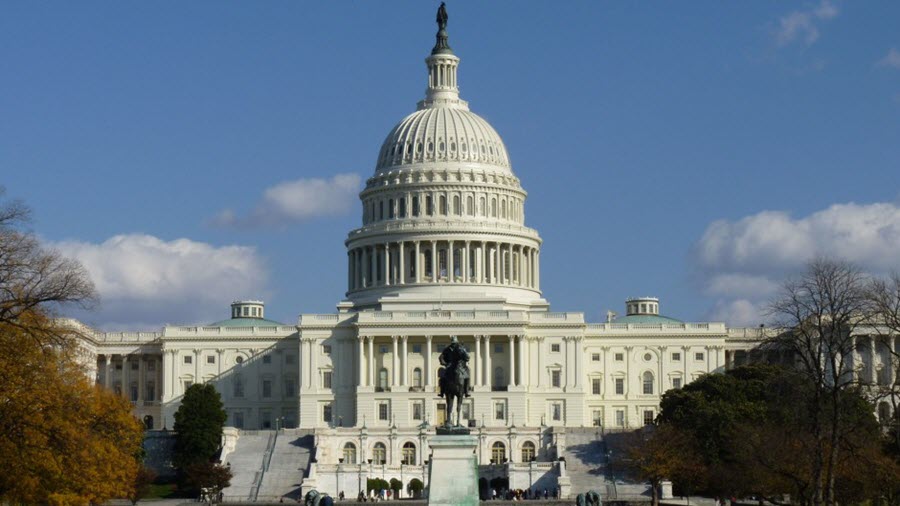House Dems Push For Further Investigation Into FCC CPAC Appearances

The smarter way to stay on top of broadcasting and cable industry. Sign up below
You are now subscribed
Your newsletter sign-up was successful
Leading House Energy & Commerce Committee Democrats have called on the Office of Special Counsel to investigate all three Republican FCC commissioners (chairman Ajit Pai is also a commissioner) for their participation in the Conservative Political Action Conference earlier this year.
Special Counsel Henry Kerner already concluded that Republican Commissioner Michael O'Rielly violated the Hatch Act prohibitions on certain political activities by federal branch employees by calling for the re-election of President Trump at the conference. Kerner issued a warning to O'Rielly that there would be consequences for a future violation. O'Rielly said he still believes he did not violate any rules, but also said he took the warning seriously.
But Reps. Frank Pallone (D-N.J.) and Mike Doyle (D-Pa.), in a letter dated Monday (May 7) have asked the special counsel to look into what they say was all three Republican Commissioners' refusal (Pai and Brendan Carr round out the trio) to cooperate with congressional oversight of their participation in the conference.
Pallone is ranking member of the Committee, while Doyle is ranking member of the Communications Subcommittee.
In response to Democratic concerns over the CPAC appearances, the FCC's general counsel, Tom Johnson, did respond to them, saying he thought the appearances were not Hatch Act violations--obviously the special counsel disagreed in the case of O'Rielly.
Related: FCC Says CPAC Appearances Were OK
"[T]heir participation was consistent with a long tradition of Commissioners contributing to robust debate on issues of importance to the agency and the nation," Johnson wrote to the Dems two weeks ago. "The Commissioners' ability to accept prominent speaking engagements like this one helps promote transparency and accountability and encourages public participation and interest in Commission rulemakings, without contravening applicable ethics obligations," he added.
The smarter way to stay on top of broadcasting and cable industry. Sign up below
Pallone and Doyle cited that response, but said it was "both non-responsive and appeared to misunderstand the Hatch Act.
“A recent letter from the FCC’s General Counsel demonstrates a fundamental misunderstanding of the application of the Act, which may help explain a recent increase in political activity among the Republican FCC Commissioners,” the Democratic legislators wrote. “We therefore additionally request that your office consider conducting training sessions at the FCC to help employees better understand how to comply with the Hatch Act.”
They said they had at least three bones to pick with the general counsel's response:
1. "It was legally misleading because the General Counsel selectively quoted sections of the Special Counsel’s Hatch Act guidance, leaving out sections directly relevant to the Commissioners’ actions.
2. It was factually misleading in its failure to mention that Commissioner O’Rielly made prohibited partisan political remarks.
3. The letter was incomplete because it failed to address a number of the questions from Pallone and Doyle, and provided no documentary evidence supporting its assertions."
At press time, an FCC spokesperson was checking on whether the chairman or GOP commissioners had any comment.
“The FCC’s career ethics officials determined that it was permissible for the three Republican Commissioners to speak at CPAC," said an FCC spokesperson. "Indeed, Cabinet members also spoke at CPAC, and the Democrats’ letter contains no explanation for why the Commissioners’ participation should be treated any differently. Sadly, we are left to conclude that the Democrats are simply trying to stop FCC Commissioners from speaking to right-of-center organizations while they have no problem with Commissioners speaking to left-of-center groups.”
Contributing editor John Eggerton has been an editor and/or writer on media regulation, legislation and policy for over four decades, including covering the FCC, FTC, Congress, the major media trade associations, and the federal courts. In addition to Multichannel News and Broadcasting + Cable, his work has appeared in Radio World, TV Technology, TV Fax, This Week in Consumer Electronics, Variety and the Encyclopedia Britannica.

